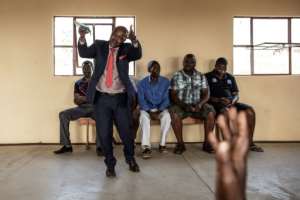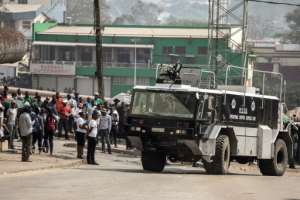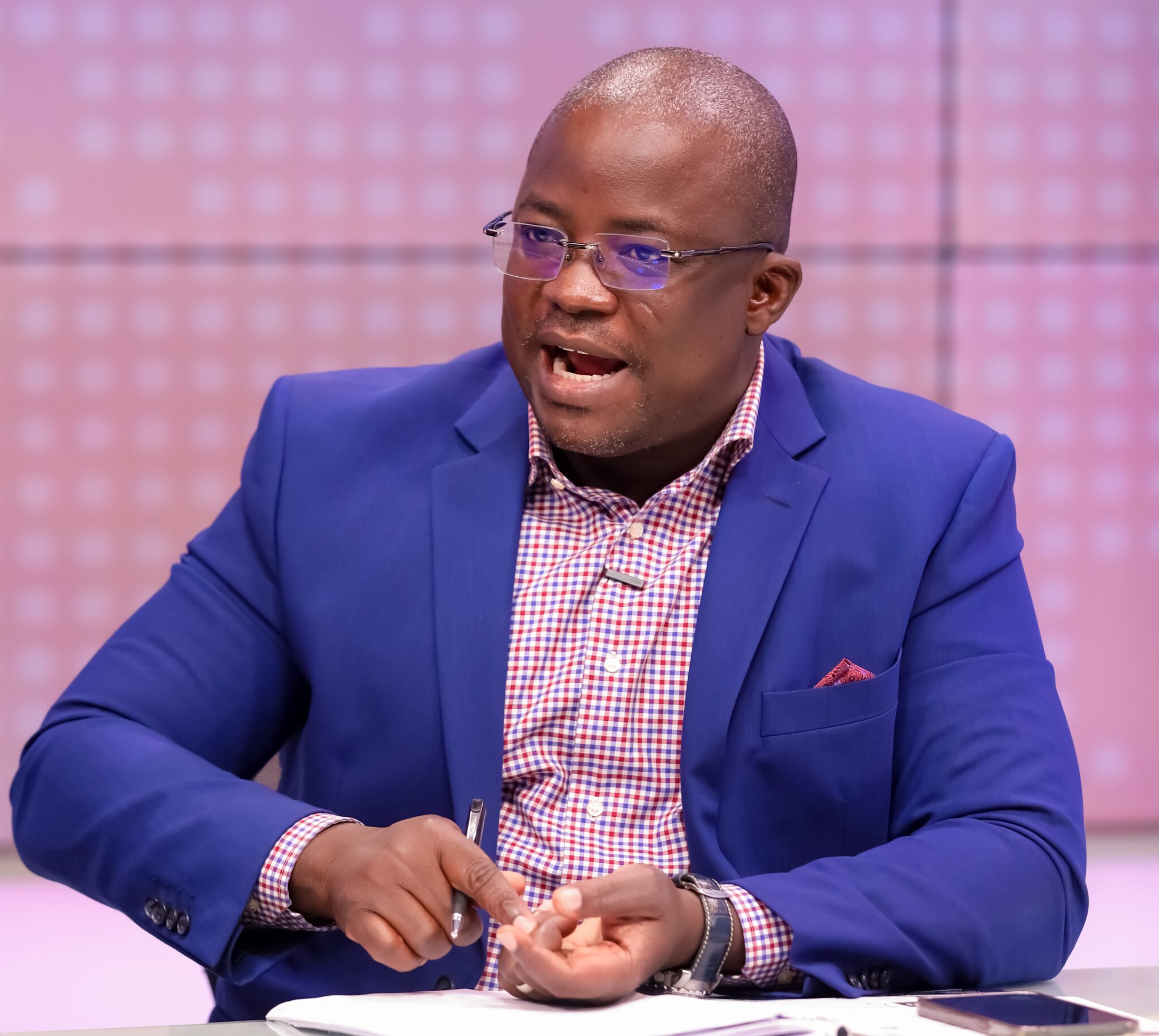
On a patch of grass beside a mountain track, eSwatini parliamentary candidate Alec Lushaba makes one final push for votes -- addressing an audience of five women and four children.
Electioneering is a low-key affair in the country formerly known as Swaziland, which goes to the polls Friday in a ballot that has thrown light on a unique, and much criticised, version of democracy.
Lushaba is dressed in a traditional robe which leaves his shoulders and legs bare, and which is emblazoned with birthday wishes to King Mswati III, the absolute monarch who rules over the tiny African kingdom.
Lushaba dismissed criticism that the vote is undemocratic because of the king's unlimited powers -- and a law that bars political parties from taking part in elections.
"No, this election is the best example of direct representation," Lushaba, 46, told AFP.
"There are no parties to get between the people and their representatives," said Lushaba, who is running for the first time as a candidate. "It is rooted in local communities, who choose who they want to represent them."
Parliamentary candidates stand as individuals and are selected by small "chiefdom" districts in a first round of voting, then compete in the main election to win in one of 59 constituency races.
"People know their members of parliament and judge them on their performance," Lushaba said on Wednesday, the last day of campaigning.
A loyal parliament
"The country has problems, but this process means we have collective decision-making. The majority view wins -- not the majority party," he said.
Among the daunting issues confronting eSwatini is that 63 percent of the population live below the poverty line, as well as having the world's highest adult HIV prevalence rate at 27.2 percent.
The lower house to be elected on Friday -- plus 10 lawmakers chosen by the king -- is expected again to be studiously loyal to the monarch and is constitutionally unable to pass any law he disagrees with.
But not all of the country's 1.3 million citizens support the election system, which is often criticised as undemocratic by rights activists and donor nations.
"The election is a waste of money and time," Zakhele Ngwenya, 24, told AFP outside a remote shop as cattle roamed on steep slopes tended by subsistence farmers.
"We are all jobless, the roads are rough dirt, and transport is bad. What has voting done to help?"
But Ngwenya still plans to vote on Friday, saying: "They tell us that maybe we will never get a job if they know that we didn't vote."
 Candidate Michael Musuku addressed 30 voters at a community hall, vowing to use the entrepreneurial skills developed running his restaurant to help voters. "The key local issue here is lack of water," he said. "I want to help them build dams". By GIANLUIGI GUERCIA (AFP)
Candidate Michael Musuku addressed 30 voters at a community hall, vowing to use the entrepreneurial skills developed running his restaurant to help voters. "The key local issue here is lack of water," he said. "I want to help them build dams". By GIANLUIGI GUERCIA (AFP) Two hours' drive away, candidate Micheal Musuku also held his last meeting of the campaign -- talking to 30 voters sitting on the floor of a community hall on a windy hilltop.
Dressed in a smart suit and red tie with matching pocket handkerchief, Musuku vowed to use the entrepreneurial skills developed running his restaurant business to help voters.
Musuku failed to win a seat in the last election in 2013, but hopes to win the Mkhiweni constituency, in the central region, against four other candidates.
"The key local issue here is lack of water," he said. "I want to help them build dams.
"In parliament, we can advise the king, he thinks about these matters and can speak to people who are experts."
Pride, and criticism
After listening to Musuku, voter Esther Mhlanga, 66, did not reveal whether he had won her support, but said she was proud of eSwatini's election system.
"It comes from our hearts," she said. "We choose without anyone telling us."
Outward signs of campaigning have been scarce, with just a few posters of candidates and an occasional vehicle with loudspeakers driving through the streets.
The Southern African Development Community (SADC) bloc and African Union have deployed election observers, but the EU and Commonwealth have not, after issuing critical reports following the last election.
The EU said that "the main principles for a democratic state are not in place" in eSwatini, a landlocked country surrounded by South Africa and Mozambique.
 Tensions within the country have been seen this week with riot police using water canon and tear gas to break up protests organised by trade unions over low public sector wages. By GIANLUIGI GUERCIA (AFP)
Tensions within the country have been seen this week with riot police using water canon and tear gas to break up protests organised by trade unions over low public sector wages. By GIANLUIGI GUERCIA (AFP) Tensions within the country have been seen this week with riot police using water canon and tear gas to break up protests organised by trade unions over low public sector wages.
After Friday's national assembly election, the king will select the prime minister and cabinet.
The upper house is formed by 20 members appointed by the king and 10 elected by the assembly.
Often accused of extravagance and waste, Mswati III famously chooses a new wife each year at the colourful Reed Dance, when thousands of bare-breasted virgins dance for him.
He exercised his absolute authority this year by changing the country's official name from Swaziland to eSwatini ("Land of the Swazis").
The new name has been gradually taken up at home and internationally.
With about 540,000 registered voters, early results are expected Saturday.
Read Full Story




















Facebook
Twitter
Pinterest
Instagram
Google+
YouTube
LinkedIn
RSS